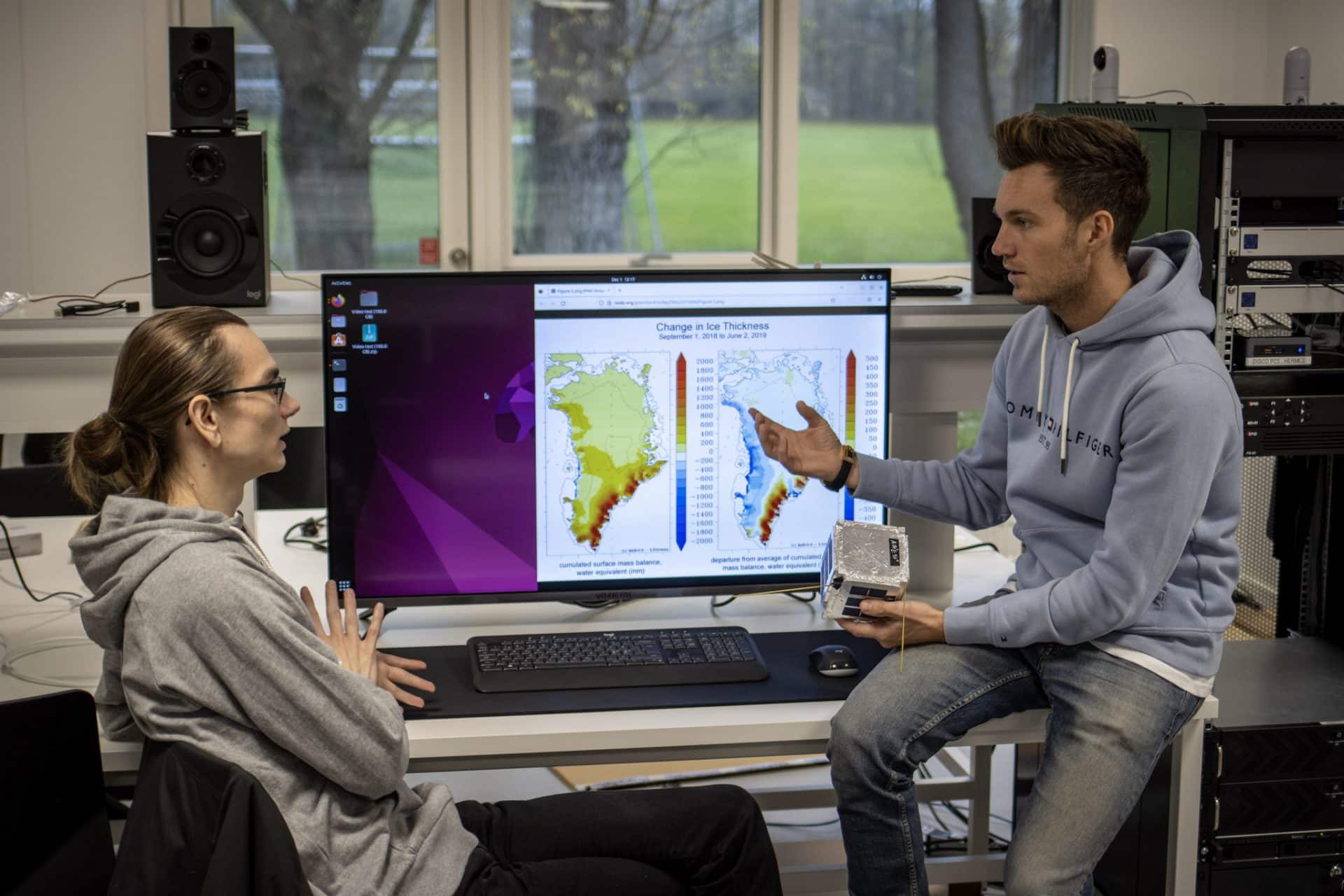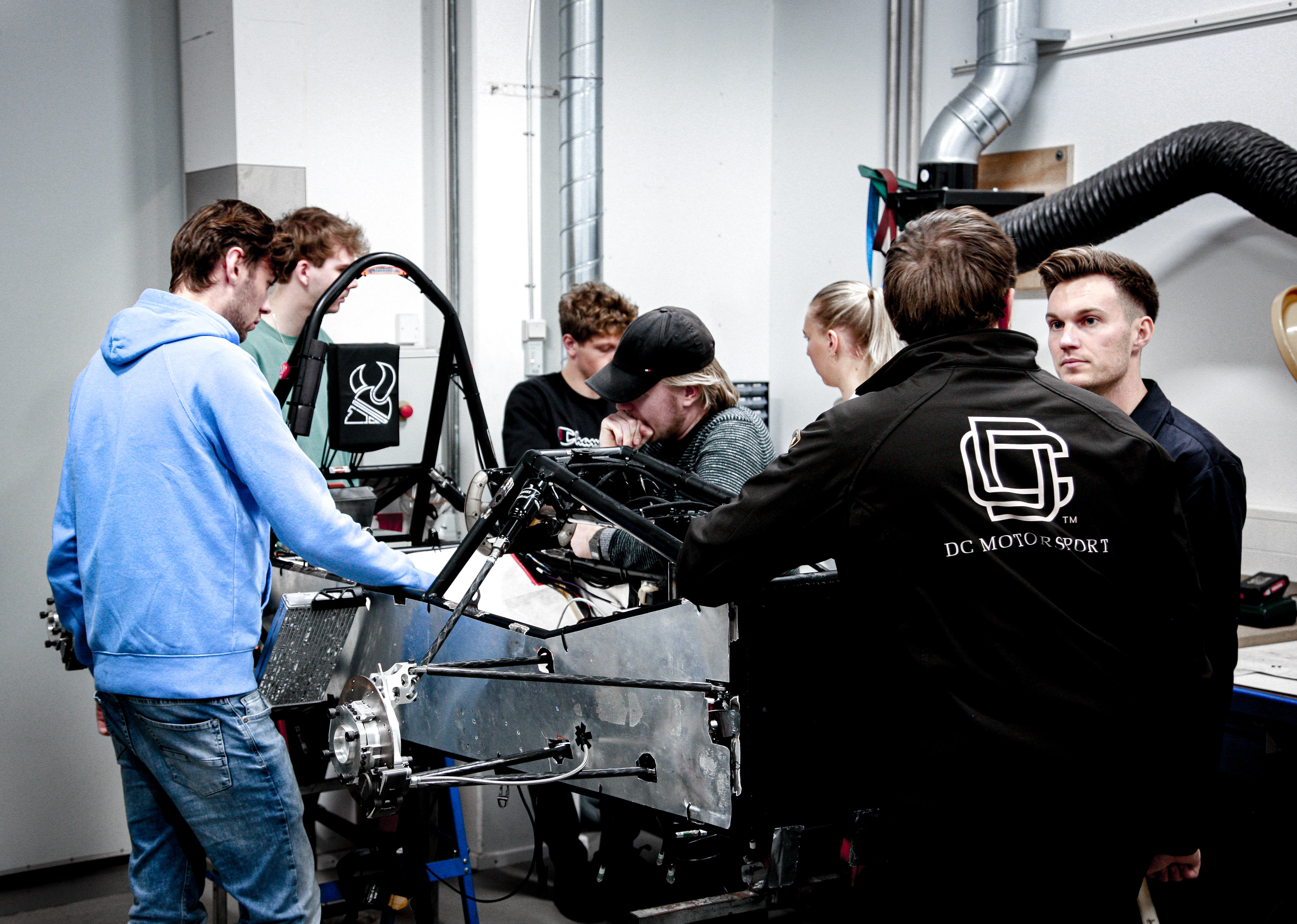The Otto Mønsted Foundation has supported the hiring of a Dream Officer to develop an innovative sanctuary for engineering students at the University of Southern Denmark.
At the beginning of the new year, engineering student Nikolaj Forskov Eriksen can wave goodbye to the Danish slush. He is travelling to sunny California, heading for a SpaceX rocket to be launched in the spring.
“Two years ago, I was talking to one of my fellow students about how crazy it would be to build a satellite and send it into space. The following year we saw a poster about a student-run satellite project at SDU. Today, I’m the student team leader for the project and I’m travelling to California to integrate the satellite into the rocket before sending it into space. And it’s even my own electronics design that will be sent into space,” says Nikolaj Forskov Eriksen, who got this unique opportunity through the DISCO satellite programme, which is one of Dream Office’s student projects at SDU.
Unique opportunities
“I don’t think it’s ever happened before that a Danish student has been allowed to do this,” says Nicolai Iversen with a certain amount of pride in his voice. And rightly so. Because this is the kind of opportunity he has helped to support on a daily basis at SDU’s Dream Office since his appointment as Dream Officer.
Dream Office is a two-year pilot project established in 2021, and with support from the Otto Mønsted Foundation, it has been possible to put an innovative engineer like Nicolai Iversen in charge of the project. Today, Dream Office embraces both campuses in Sønderborg and Odense.
Dream Office is all about creating unique opportunities and experiences for the students in their spare time. The various projects give them skills that they wouldn’t otherwise get during their education, and they learn to apply them in practice. This gives them a head start in terms of competences and stimulates them to establish startups,” Nicolai Iversen emphasises.
Student projects are often targeted towards specific international competitions or events that the students are working towards. Dream Office facilitates a number of projects such as: SDU Vikings, developing high-tech electric racing cars, while SDU Eagles designs and manufactures drones, and the DISCO project develops small CubeSats satellites. Finally, The Als Rocketry Club is working towards participating in the European Rocketry Challenge with their own rocket system.
Hand-on training boosts insight
What kind of insights do the students gain from the projects?
“For example, you can see a mechanical engineer design something, send it to a workshop and get a price for it that seems surprisingly high. When they try to manufacture the part themselves, they realise that what seems simple on the computer is a huge challenge when it needs to be manufactured in practice. “You don’t really learn to understand these kinds of mechanisms at university, but you do through the activities here. It gives you some crazy competences, no matter what industry you want to work in afterwards, because the students who enter the workplace afterwards understand how the processes work when you follow several aspects of a project for a long time. If you hire a student who has worked on a project in the Dream Office, they’re just more likely to understand how a workflow works as an engineer. The other part of the foundation here is that the project must contribute to a larger number of startups that can create value for society – it’s an essential part of what we work for,” says Nicolai Iversen.

The work in Dream Office has already produced positive results in the first year of operation, he emphasises.
“We can see that now – that it has a positive effect on the students. We’ve grown from 25 to over 100 students who are active in the projects, so we’ve got a good grip on the recruitment strategy. In addition, startups have been established and we are attracting more new students to our university because we are also promoting STEM to primary and secondary schools. We also find that the projects contribute to much greater well-being for our international students. When they come here and don’t know exactly what social environments they need to grab hold of, they can come down here and work in a team. It’s so cool to see how they thrive on that.”
The facts
Dream Officer, Nicolai Iversen, graduated as a mechanical engineer from SDU in 2019, where he has subsequently worked on projects in the drone and composite fields, among others. He has also helped develop the space team The Danish Student Cubesats prOgram (DISCO). It is a collaboration between four Danish universities and the Danish Industry Foundation and aims to promote space technology start-ups in the ESA BIC incubator programme.

